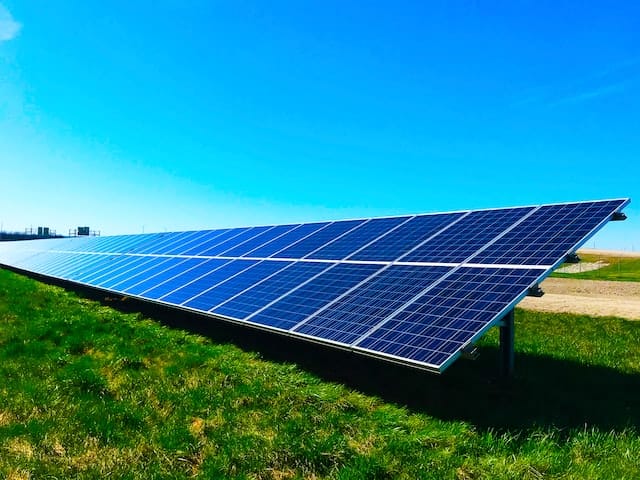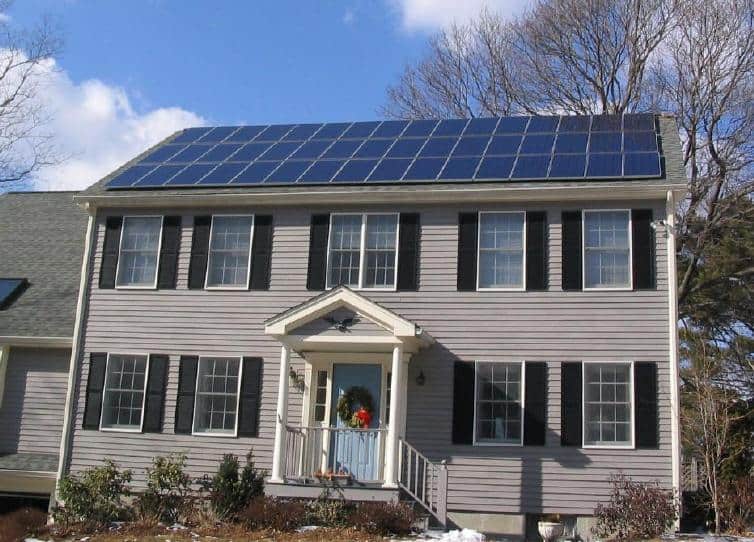In Singapore and Malaysia, solar energy is less popular. People don’t really want to take the risk. Perhaps they feel that solar panels are not reliable or that they don’t work in the long run.
What is Solar Panel?
Solar panels are best when it is outside of your house, facing the sun, in order to collect energy. But if you don’t have enough sun over your home, where will you place your solar panels?
If you can afford it, you can install them at a higher level than your house so that they will still get enough sunlight for energy generation.
Or you can install them on the roof of your house or on another high place. But if you don’t have any other options then installing solar panels inside your house is a good idea as well.
Your roof may not be flat but it might still give some space for installing solar panels inside your house.
If there isn’t any space then try installing them on a wall or another high place where they will get sunlight from one side only but this should still work as long as it faces the sun directly in most of the daytime hours throughout the year when there is sunlight available at all (in some places in Singapore and Malaysia, there is sunlight during certain months).
This system will earn credits for surplus electricity which it will send back to the grid or sold back at full price rather than generating credits while using up electricity from the grid.
It will work independently at night time when there isn’t enough sunlight coming into your home but this would require more batteries to store excess energy generated during daytime hours so it might not be very cost-effective in terms of money and space required (batteries do cost quite a lot).
It’s always a good idea to consider installing solar panels on your home. If you have a roof then you can install them there (or somewhere else if there isn’t any space on the roof).
If you have no roof then try to find some space inside your house where you can install them. You don’t even need to face the sun directly for them to work as long as they get sunlight during most of the daytime hours throughout the year.
Another option is to use solar panels for energy generation and also keep some batteries in your home to store excess energy during daytime hours so that you can use it at night time when there isn’t enough sunlight available.
But this might not be very cost-effective because of the high price of batteries which might not be worth it in terms of money and space required.
Also, always remember that batteries do wear out over time so they will have a limited lifespan so you will also need to replace them at some point if you keep using them for storing excess energy generated by your solar panels.

How much can you save?
Solar panels don’t cost very much in the first place but it is important to know how much electricity they can generate and how long it will take to pay for themselves.
But don’t forget that if you install them on your roof then you also need to invest in an inverter which will basically convert the DC power generated by solar panels into AC power.
Solar panels typically have 25-year warranties so from the moment that you install them on your house until they reach their expiry date, they should produce more than enough electricity to cover their initial investment.
According to some online resources, one KW of solar PV can generate around 2,800 kWh in a year (in Singapore).
Let’s say that we pay S$0.27 per kWh (the average price of electricity consumption in Singapore). In this case, we would earn around S$1,000 per year from selling surplus electricity back to the grid.
This means that our investment would give results within 20 years.
Also, remember that each KW would be able to generate around 2500-3000kWh during its lifespan. So we would actually generate around 15,000,000kWh in total.
With this energy (15 million kWh), we can power around 13 homes each with a 1-ton air conditioner for 20 years. This is why it’s so cost-effective to install solar panels in your home.
What are the benefits of having solar panels in my home?
There are many benefits of installing solar panels in your home in Singapore and Malaysia.
Save the Environment
First of all, you will be helping to save the environment by generating less pollution with your own solar panels. The price of electricity in Singapore and Malaysia keeps getting higher every year but even if you become more aware of this and try to decrease your electricity consumption by turning off lights and appliances while not in use or using them less often then you can still help to save the environment by reducing pollution (this is true for all countries).
People who don’t have solar panels installed in their homes do generate a lot more harmful emissions. They use more electricity from the grid than what they generate with their own solar panels. They also produce a lot more harmful emissions with their old-fashioned non-renewable energy sources.
Off-grid solutions are also much better for the environment. They don’t rely on harmful coal power plants. Of course, if you can afford it then it’s always better to have both types of systems.
Save Money
You will also be able to save money without having to worry about high electricity prices.
Solar energy costs nothing so it won’t even affect your budget at all while you will still benefit from cheaper electricity bills throughout its lifespan which is usually around 25 years.
If you want to start saving money immediately, I recommend getting appliances that do not require a lot of electricity.
In the chance you want to save money in the long-term, I recommend getting a grid-tie system. It will cost a little bit more but at least you will be able to use solar energy for free.
Store Electricity
If you get a grid-tie system, you can still use the batteries for storing electricity. They won’t be necessary all the time because excess electricity generated during daytime hours will go into the grid.
This means that your solar panels will generate electricity for free.
What are the disadvantages of having solar panels on my home?
Solar panels do produce some heat. They might cause some problems when it comes to air conditioning in hot summers or winters. It happens when outside temperatures are much higher than inside temperatures.
You might also need some extra insulation around the windows. Windows tend to let out a lot of heat in extremely cold winters or humid summers.
Another disadvantage is that solar panels don’t produce any light inside your home. It might be a good idea to get some additional light sources during nighttime when there is no sunlight available.
How much would I save by installing solar panels on my home? (monthly savings)
There are many factors that determine how much money you will save by installing solar panels on your home.
The amount of money you will save depends on the amount of energy your solar panels generate during daytime hours and how much energy your home consumes.
It also depends on the type of HVAC system you have installed because some types are more efficient than others when it comes to energy consumption.
The most important thing is that you do a lot of research. The final price can change according to what exactly you buy and how much you spend on each item.
In general, if you get an off-grid system then it should cost around $5,000-$30,000 for an average-sized house depending on what type of appliances you choose to have installed inside your home (for example, adding a water heater and/or air conditioning unit will increase the price while adding less electricity-consuming appliances such as LED lights or small electrical appliances might be cheaper). You can find more information about off-grid systems in this article.
If you get a grid-tie system then it should cost around $2,000-$5,000 for an average-sized house depending on the capacity of your solar panels (the more powerful they are the more expensive they will be). You can find more information about grid-tie systems in this article.
The exact prices for both types of systems vary from place to place so I recommend doing some research before getting anything.

